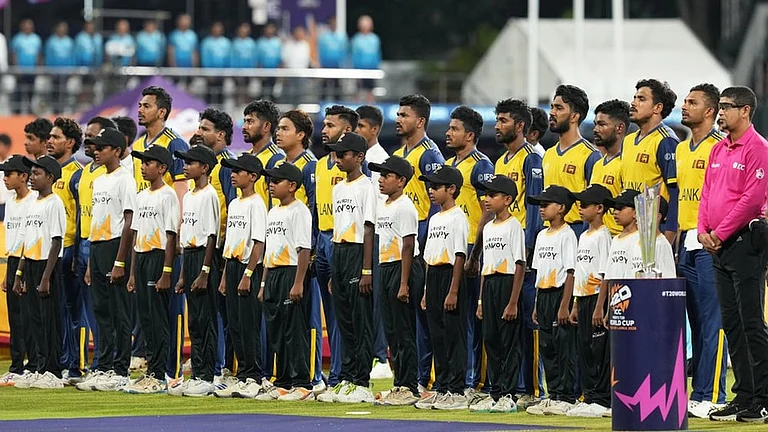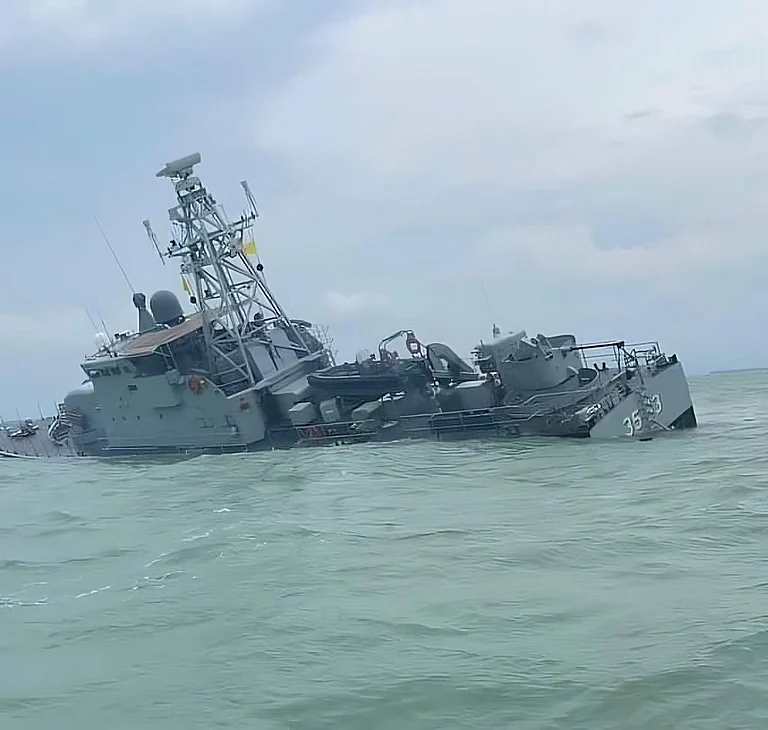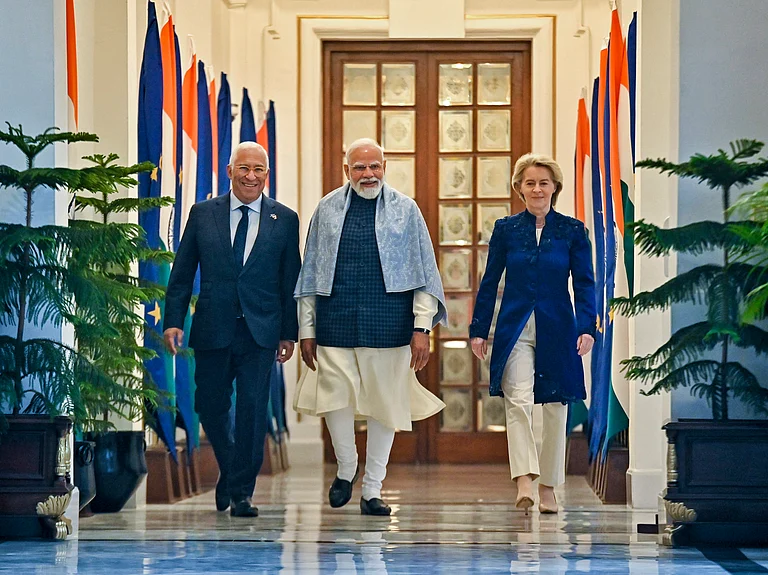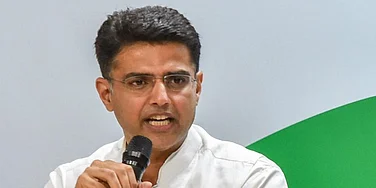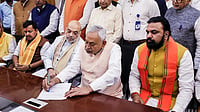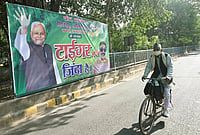
Summary of this article
At the NDTV World Summit, PM Harini Amarasuriya said the 1998 FTA between India and Sri Lanka “needs to be upgraded” to reflect evolving economic ties.
She praised India’s rapid transformation and said its progress offers lessons for developing nations like Sri Lanka.
Amarasuriya highlighted areas of cooperation including connectivity, defence, tourism, and energy security, calling India Sri Lanka’s top investor and partner.
Sri Lankan Prime Minister Harini Amarasuriya claimed that the 1998 India-Sri Lanka Free Trade Agreement (FTA) "needs to be upgraded" on Friday.
She added that as the island nation recovers, its partnership with India has "evolved into a forward-looking, multi-faceted collaboration in every conceivable area" during her speech at the NDTV World Summit.
This is Amarasuriya's first official trip to India since taking office as prime minister, and she is there for three days from October 16–18.
The institution referred to her return to the school as a "remarkable homecoming" of a "distinguished alumna". It gave her a red carpet greeting when she visited a Hindu institution here on Thursday.
Speaking at the summit, she described how, as a young Sri Lankan student, she had come to Delhi in the early 1990s to pursue a bachelor's degree in sociology.
"Delhi.. a city that holds some of my formative memories. Standing here in Delhi feels like coming full circle. Three decades ago, in the early 1990s, I was a student at Hindu College, a young student from Sri Lanka, navigating a world in flux. Delhi was a city of ideas then, as it is now, reflecting the enduring spirit of India through the centuries," she said.
It was a period of change and economic reforms. "For many of us students, it was our first encounter with the concept of risk, in life, in economics, in politics and in identity".
And, returning now, several decades later, "I see an India transformed, a confident, vibrant nation of 1.4 billion people charting its own path," Amarasuriya said.
India's economy is currently one of the largest and fastest-growing in the world. According to her, its infrastructure projects, green transition, and digital revolution are establishing the groundwork for Viksit Bharat, a vision of a developed and thriving country.
"India's journey offers valuable lessons for developing countries, including my own," the Lankan PM said.
The members in the audience included many word leaders from different fields.
"Today as Sri Lanka rebuilds, our partnership with India has evolved into a forward-looking, multi-faceted collaboration in every conceivable area, from development cooperation, training and capacity building, connectivity, including grid connectivity, energy security, digitalisation, education and technology, trade and investment, defence, tourism, culture and importantly people-to-people connectivity," she said.
According to Amarasuriya, navigating change in unpredictable times calls for the bravery to work together, the humility to pick up new skills, and the ability to transform unity into mutual power.
She also mentioned the 1998 free trade deal between Sri Lanka and India.
"Of course, the India-Sri Lanka free trade agreement (FTA), first for both our countries, signed way back in 1998, needs to be upgraded," the Lankan PM said.
It will be mutually beneficial to explore how Sri Lanka can integrate more fully into India's manufacturing and service sectors' value chain, she said.
The theme of this summit, 'Risk, Resolve, Renewal', reflects the reality of the current era, the Lankan leader said.
"We live in a time when change no longer moves in predictable cycles; instead, it arrives in shocks. A pandemic, a climate crisis, geopolitical shifts and rapid technological disruptions have together redefined what leadership demands. Uncertainty today is not episodic; it's structural, touching not only economics and security but also trust values and the very meaning of progress," she added.
However, opportunities also arise from uncertainty. According to her, it forces one to reconsider, invent, rethink, adopt, and envisage new possibilities.
Amarasuriya emphasised that risk is frequently depicted as danger, which is occasionally confused with carelessness. But taking a chance is also the first step towards advancement and rejuvenation.
"Without taking risks, growth and change remain impossible. At the same time as leaders, we must remember that risk may be experienced differently by different groups of people; so ensuring that the vulnerable and the marginalised are protected at all times is also critical. And, we must refrain from romanticising risks as if it is the only impetus for change as well," the Lankan PM added.
The last few years have been a time of "fragility and fortitude" in Sri Lanka's difficult journey, she remarked.
She also mentioned the Aragalaya protests, claiming that they influenced political reform and public opinion.
The majority of Sri Lankans were experiencing economic troubles, which sparked these protests in early 2022.
"Sri Lankans mistrusted the political establishment, but not democracy itself, the Lankan PM said, adding that the 2024 elections illustrate the enduring impact of the Aragalaya.
A wider coalition of "non-elite social forces" replaced the Colombo-centric, westernised elite structure, she claimed.
She added in her speech that India is Sri Lanka's top investor, biggest economic partner, and biggest supplier of tourists.
"Sri Lanka seeks to develop a maritime hub for the Indian Ocean Region, offering a cost-efficient gateway for global trade, through our deep waters and ports along the east-west shipping lanes," she added.
The Lankan PM further said the "Indian Ocean security is a shared concern for both our countries, underscoring the importance of continued collaboration in maritime security and regional cooperation and energy security".



